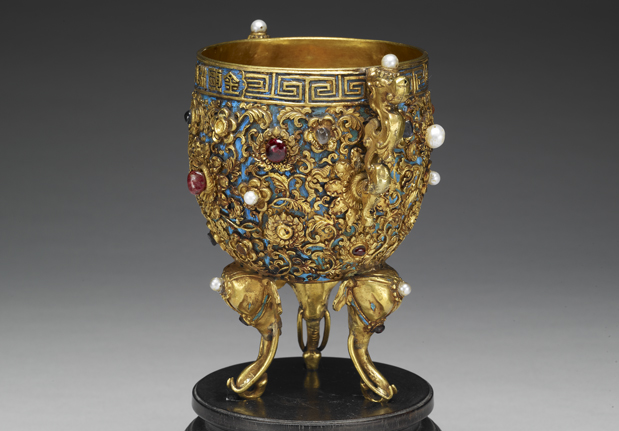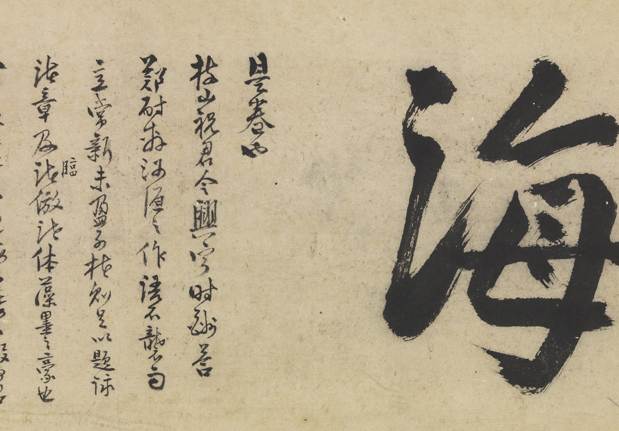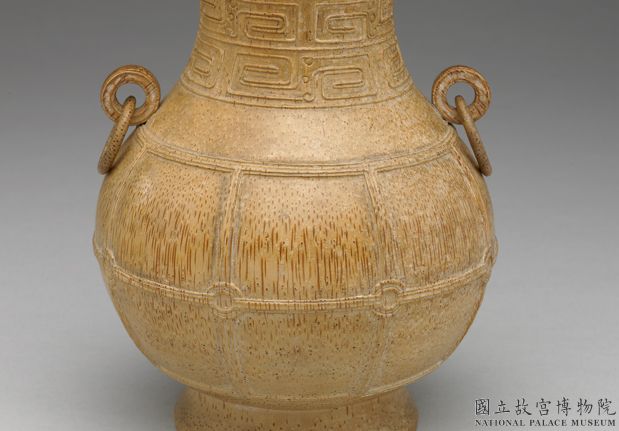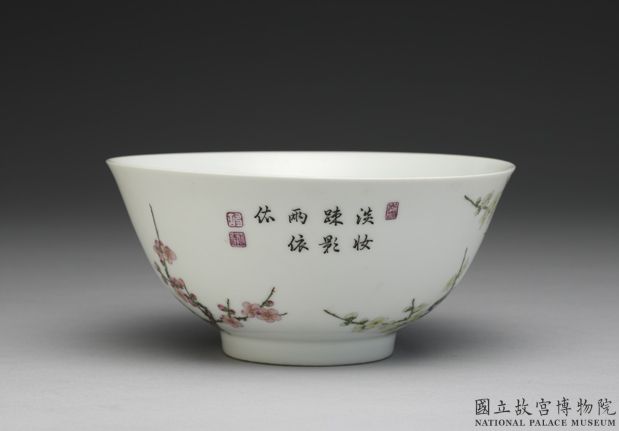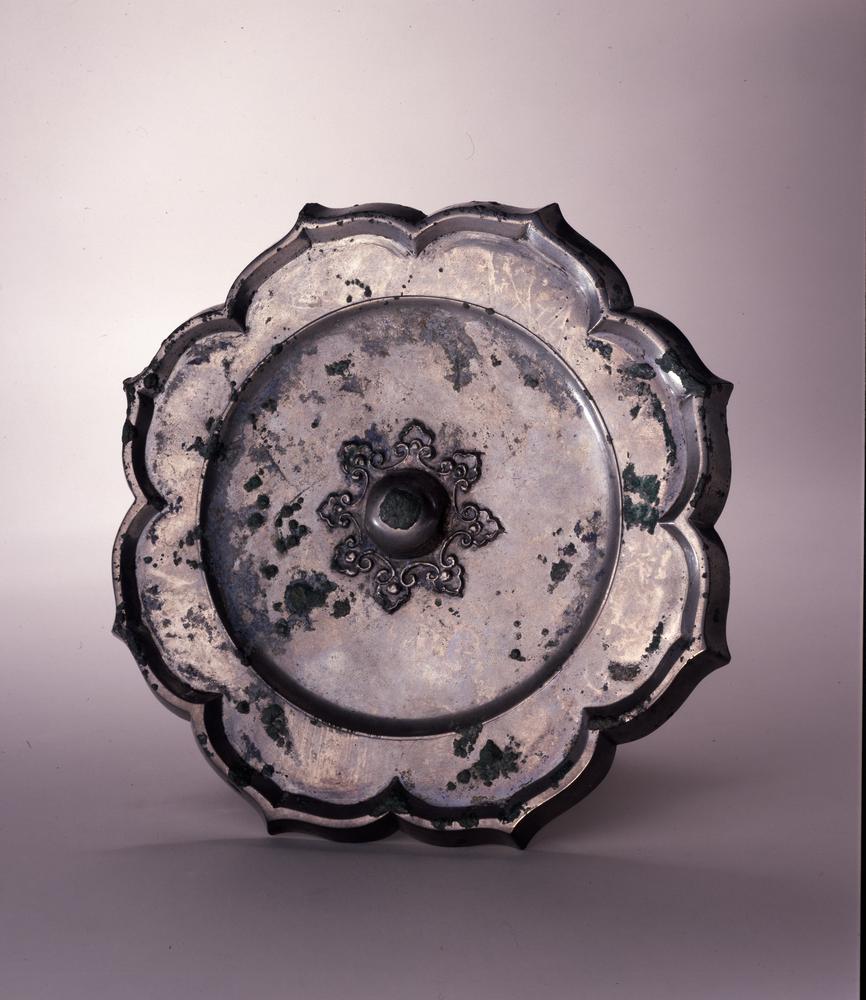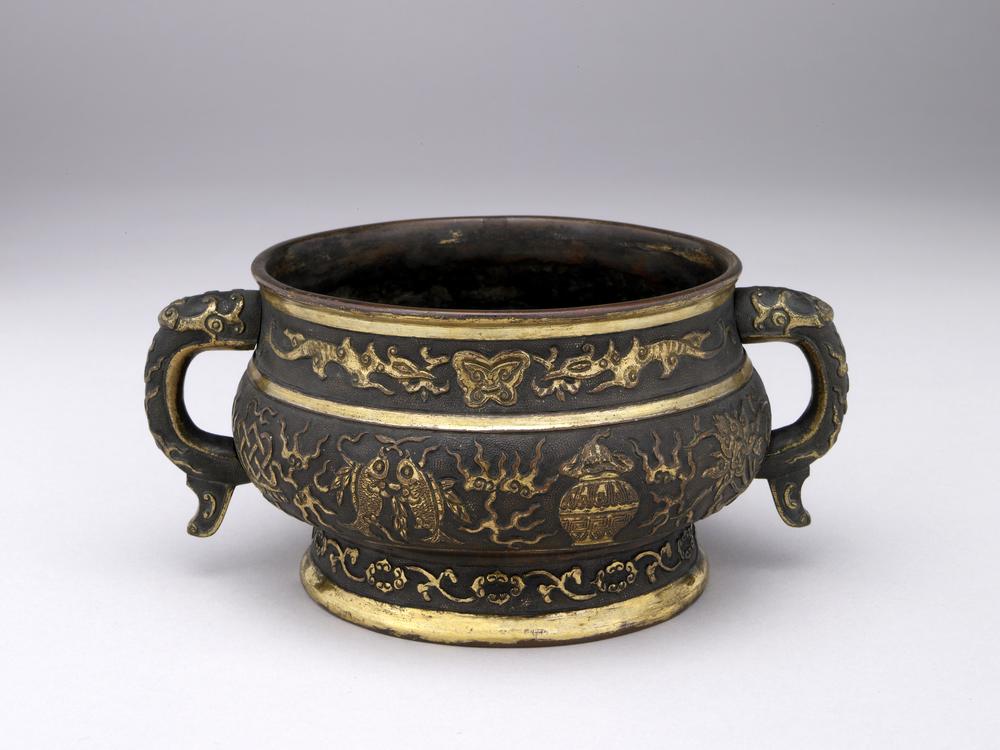Period:Ming dynasty Production date:1610-1644 (circa)
Materials:porcelain
Technique:glazed, carved, incised, underglazed,
Subjects:flower
Dimensions:Diameter: 7.20 centimetres Height: 7 centimetres
Description:
Stem cup with carved decoration and ‘qianbai’ glaze. This unusual squat stem cup has a deep bowl with rounded sides, an everted rim and a solid flared stem. Its recessed base is marked with a spurious four-character Chenghua mark in underglaze blue. A flowering peony scroll is carved into the exterior of the bowl with additional lines radiating from the join of the stem. Inside and out it is covered with a monochrome ‘qingbai’ glaze.
IMG
![图片[1]-stem cup BM-1947-0712.290-China Archive](https://chinaarchive.net/Ming dynasty/Ceramics/mid_00255536_001.jpg)
Comments:Harrison-Hall 2001:Few of the porcelains produced in the sixteenth and seventeenth centuries which bear fifteenth-century marks are fashioned in direct imitation of the earlier pieces. Chenghua porcelains are, for example, characterized by a slight yellowish tinge to the glaze and no porcelains of the form and design of the present stem cup were in fact made in the Chenghua era. The mark should therefore be regarded as a commendation of its quality and as a testimony to the popularity of earlier wares rather than as an intent to deceive.Blue-and-white stem cups of this form are more common than ‘qingbai’ examples. A stem cup of the same size, painted in underglaze blue with two figures in a landscape, was included in the Oriental Ceramic Society of Hong Kong’s exhibition, ‘Transitional Wares and Their Forerunners’, in 1981.
Materials:porcelain
Technique:glazed, carved, incised, underglazed,
Subjects:flower
Dimensions:Diameter: 7.20 centimetres Height: 7 centimetres
Description:
Stem cup with carved decoration and ‘qianbai’ glaze. This unusual squat stem cup has a deep bowl with rounded sides, an everted rim and a solid flared stem. Its recessed base is marked with a spurious four-character Chenghua mark in underglaze blue. A flowering peony scroll is carved into the exterior of the bowl with additional lines radiating from the join of the stem. Inside and out it is covered with a monochrome ‘qingbai’ glaze.
IMG
![图片[1]-stem cup BM-1947-0712.290-China Archive](https://chinaarchive.net/Ming dynasty/Ceramics/mid_00255536_001.jpg)
Comments:Harrison-Hall 2001:Few of the porcelains produced in the sixteenth and seventeenth centuries which bear fifteenth-century marks are fashioned in direct imitation of the earlier pieces. Chenghua porcelains are, for example, characterized by a slight yellowish tinge to the glaze and no porcelains of the form and design of the present stem cup were in fact made in the Chenghua era. The mark should therefore be regarded as a commendation of its quality and as a testimony to the popularity of earlier wares rather than as an intent to deceive.Blue-and-white stem cups of this form are more common than ‘qingbai’ examples. A stem cup of the same size, painted in underglaze blue with two figures in a landscape, was included in the Oriental Ceramic Society of Hong Kong’s exhibition, ‘Transitional Wares and Their Forerunners’, in 1981.
© Copyright
The copyright of the article belongs to the author, please keep the original link for reprinting.
THE END
